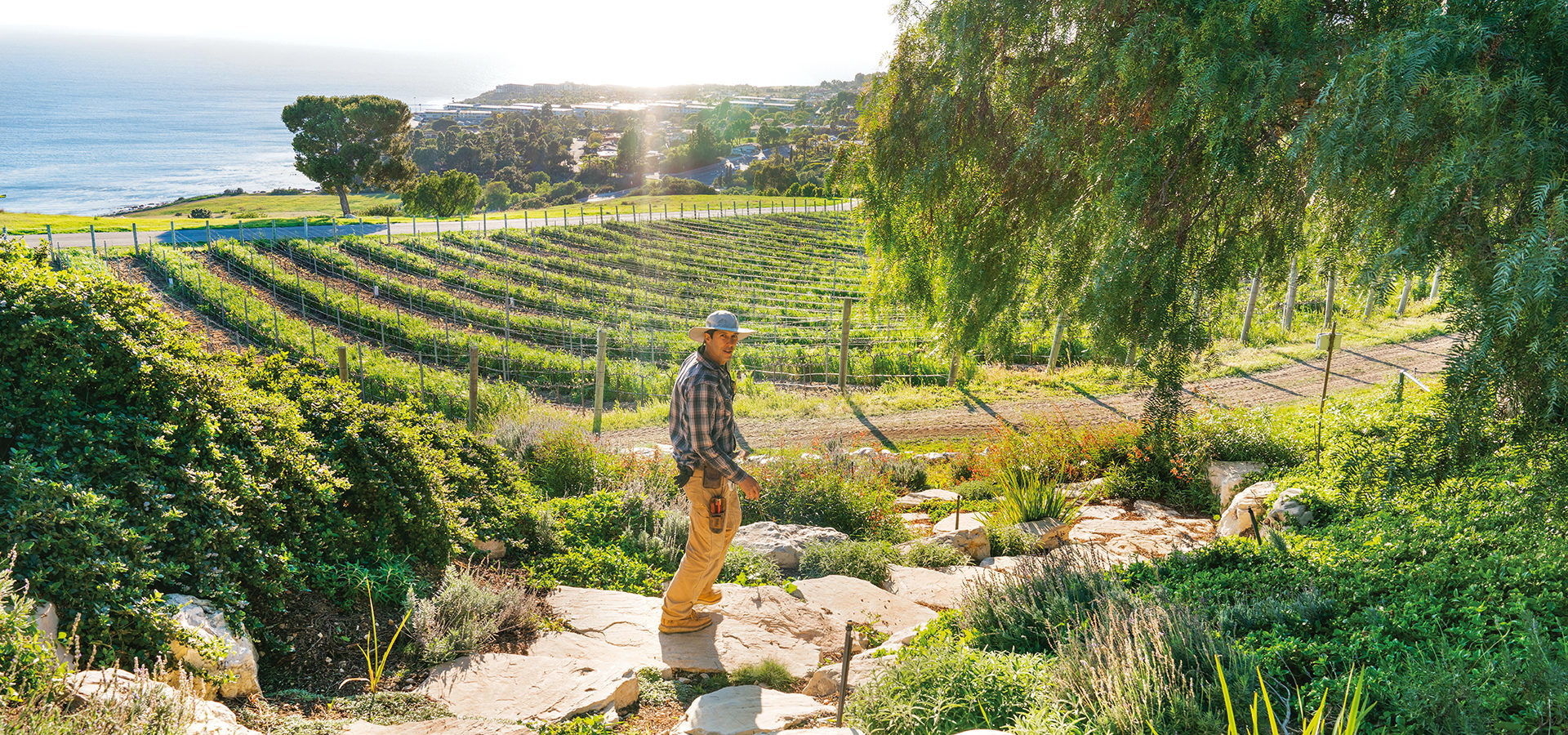Farm Manager Nick Zetts Leads with Sustainability and Cultivates a Future for Urban Agriculture
Down to earth.
-
CategoryFarm + Table
-
Written byDiane E. Barber
-
Photographed byShane O’Donnell
Nick Zetts began his love affair with nature during his childhood in rural Virginia. Dirt roads, fishing ponds, open fields, forests, wildlife and a nearby river set the stage for his countless boyhood adventures with his two brothers.
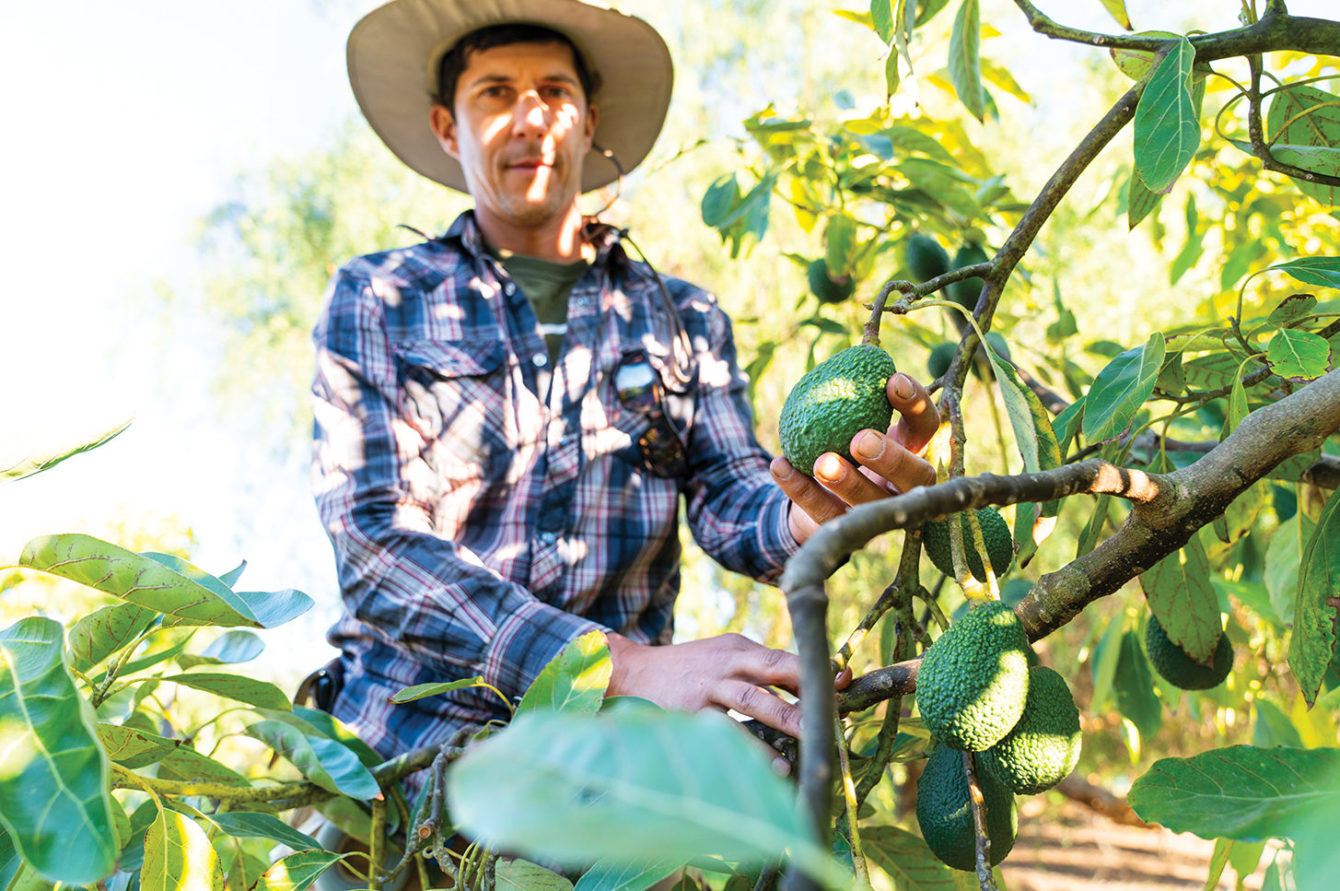
“We played outside every day until it was dark. Some of my best memories are of listening to the cicadas and whip-poor-wills at night,” he remembers.
After Nick graduated from high school, he studied biology during his freshman year at Virginia Commonwealth University before he joined the U.S. Coast Guard for four years. “I was always fascinated with travel and the natural world,” he shares. “I knew the exact ship that I wanted to be assigned to, and I got on it. I spent time in the Arctic and Antarctica and saw penguins, whales, sea lions, polar bears and other wildlife. It was very exciting.”
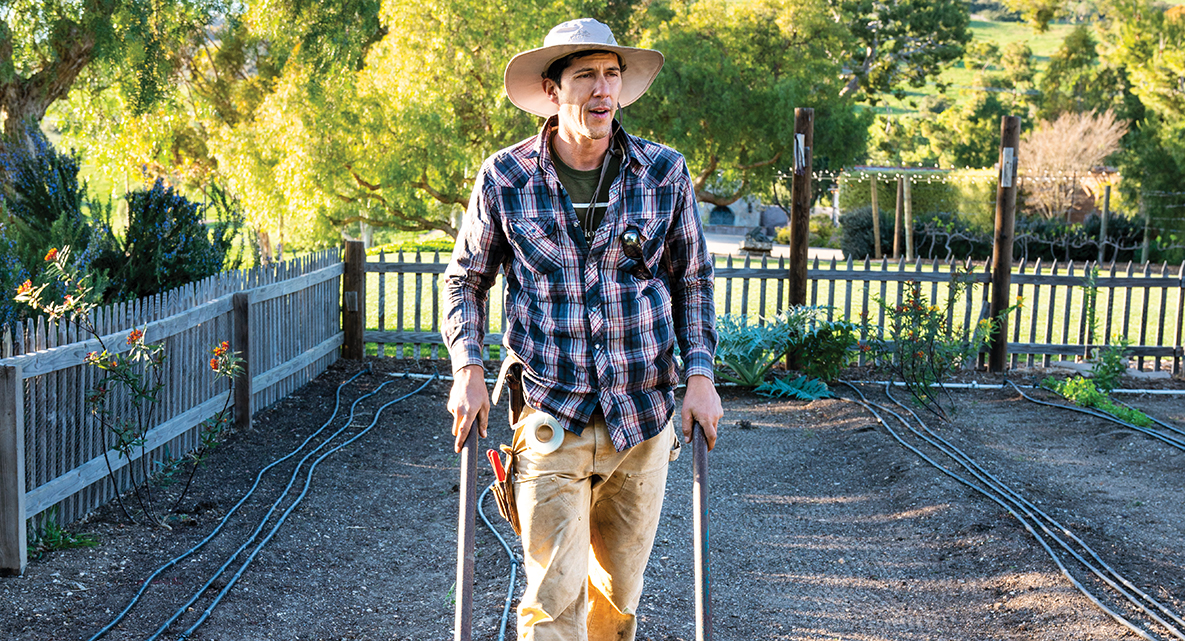
“I met a local mountain man at a craft fair who needed a helper on his small organic farm that he named Dat Dar Mini Farm,” he shares. “I worked for him in exchange for room and board while earning my bachelor’s degree in fisheries science. He taught me a lot.”
“Sustainability is a lifestyle and a way of thinking. It should not be a trend. The masses are becoming more aware of it now, but effective change needs to come from the top down. Big industry needs to be pressured to make changes. We can all do our part.”
The farming experience later helped Nick qualify for an agriculture program with the Peace Corps. “I wanted to go anywhere in Latin America and was fortunate to go to Ecuador in 2006. I spent two years in the Andes Mountains and one year in the Galápagos.”
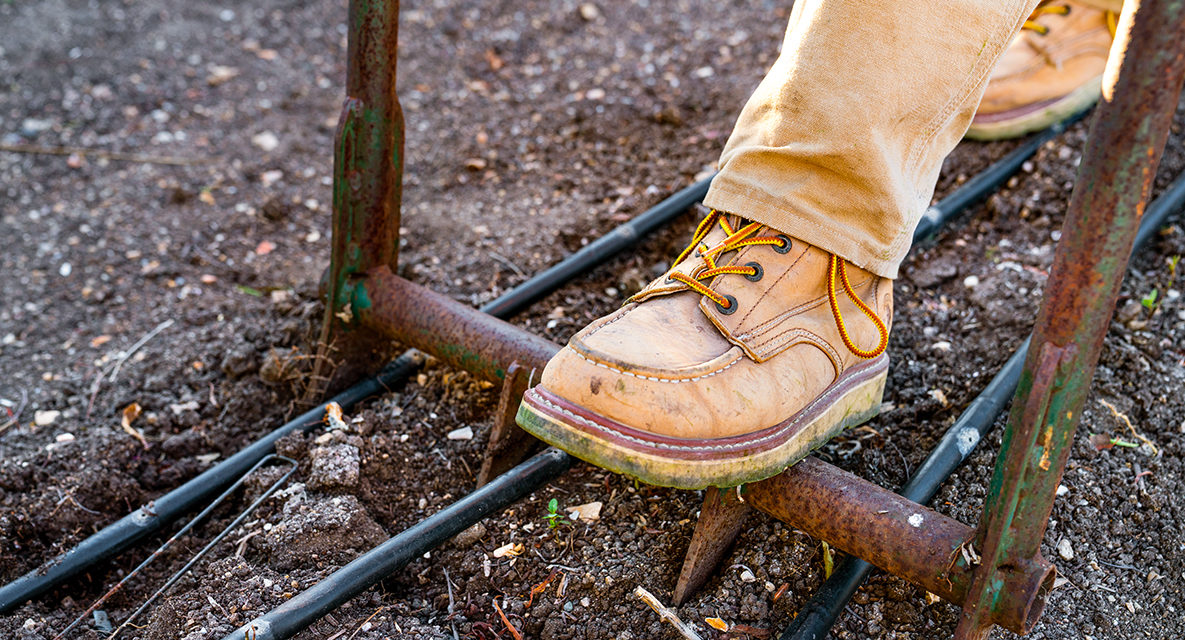
While in the mountains, he created a school garden with kindergarten children and their mothers to teach them about organic farming and nutrition. “There were 72 Peace Corps projects in school creativity for kids from kindergarten through high school, and we won the competition,” he says. “The teacher was given a scholarship and a laptop computer for her studies.”
He then spent his last year on Isabela Island developing agritourism projects and working with people on small farms. “They knew how to farm, but we shared a cultural exchange that added value to what they were doing—such as compost production and organic vegetable techniques. When I was in Ecuador, I kept thinking, ‘This is how I want to live!’”
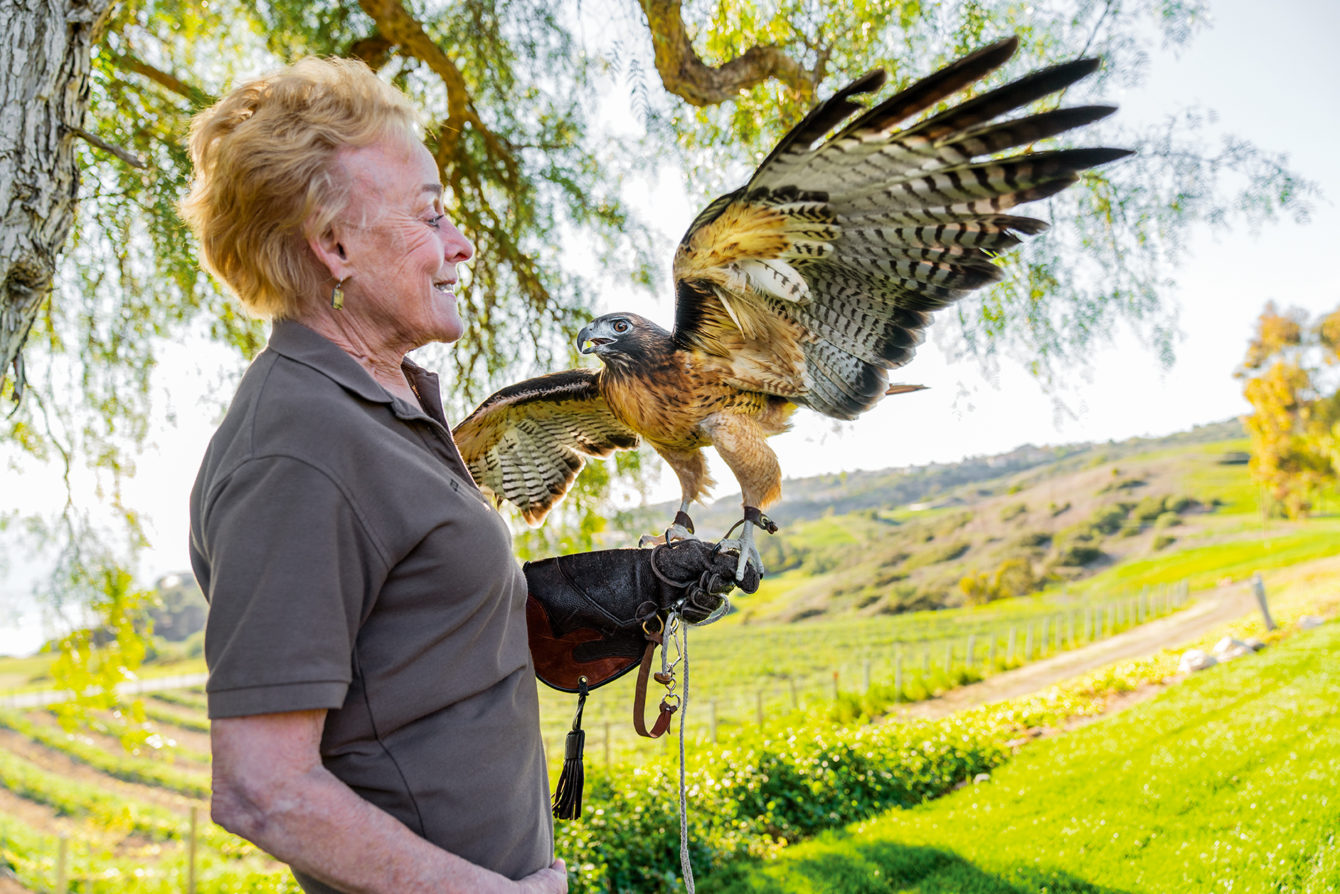
When Nick finished serving in the Peace Corps, he returned home to earn his graduate degree in agriculture at Virginia Tech. He also volunteered for a nonprofit organization as a bilingual instructor training farmers in pesticide safety, which was a free service for growers that was required by law. When he completed his education, he relocated to California to join his older brother in Napa Valley and turn the page on another adventurous life chapter.
“I worked at a winery and gave tours for a while before I went to work as the garden manager for Mustards Grill,” he says. “I was there for a couple of years before I met the vineyard consultant for Jim York’s Catalina View Gardens, who basically recruited me. Jim and his wife, Kathy, came to see me when they were on a road trip and invited me to visit their farm in Rancho Palos Verdes. I was intrigued by the bigger challenge and the opportunity to learn a new skill with the vineyard.”
He has been their farm manager since 2016. Says his boss, Jim, “Nick has been an outstanding addition to lead our agricultural activities—particularly with growing excellent quality wine grapes next to the ocean.”
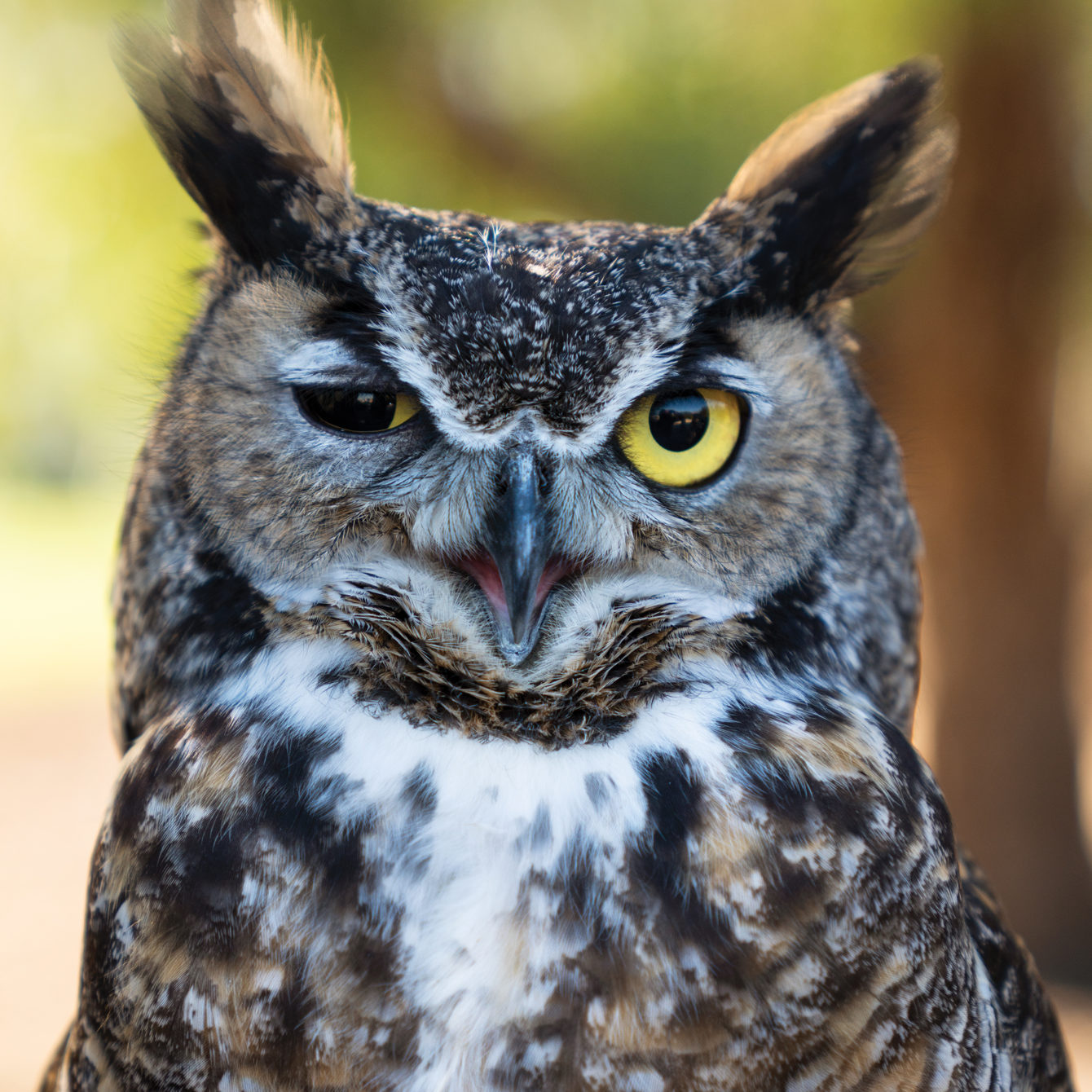
Nick wears his lifelong passion for nature on his sleeve, and sustainable farming is undoubtedly his calling. The Catalina View Gardens vineyard, which is harvested manually, is his primary responsibility. He also manages the avocado and citrus groves, along with various vegetable crops.
“Modern agriculture needs to find a balance,” he explains. “We will always disrupt some things but can do it while taking a regenerative and holistic approach to farming. If we allow it, the natural order of things will keep everything in harmony. We simply need to provide the conditions to create a rich habitat, such as bettering our soil by adding composting for fertilization and incorporating cover crops in the winter.”
According to Nick, the soil on the farm is loosened and aerated by hand and spading, which chops the soil. “Tilling, which more commonly turns soil over, is not healthy for the earth because healthy microorganisms, insects and earthworms all die when exposed to the sun after the soil is turned. Stored carbon is also emitted into the environment. Modern industrial farming kills soils and uses chemicals. No-till farming keeps the structure of soil the same with minimal disruption,” he explains.
Water usage to minimize waste during irrigation is also a key environmental consideration on the farm. The cover crops that enrich the soil are planted to retain water, and the clay soil naturally holds water. Drip systems are also used for suitable crops.
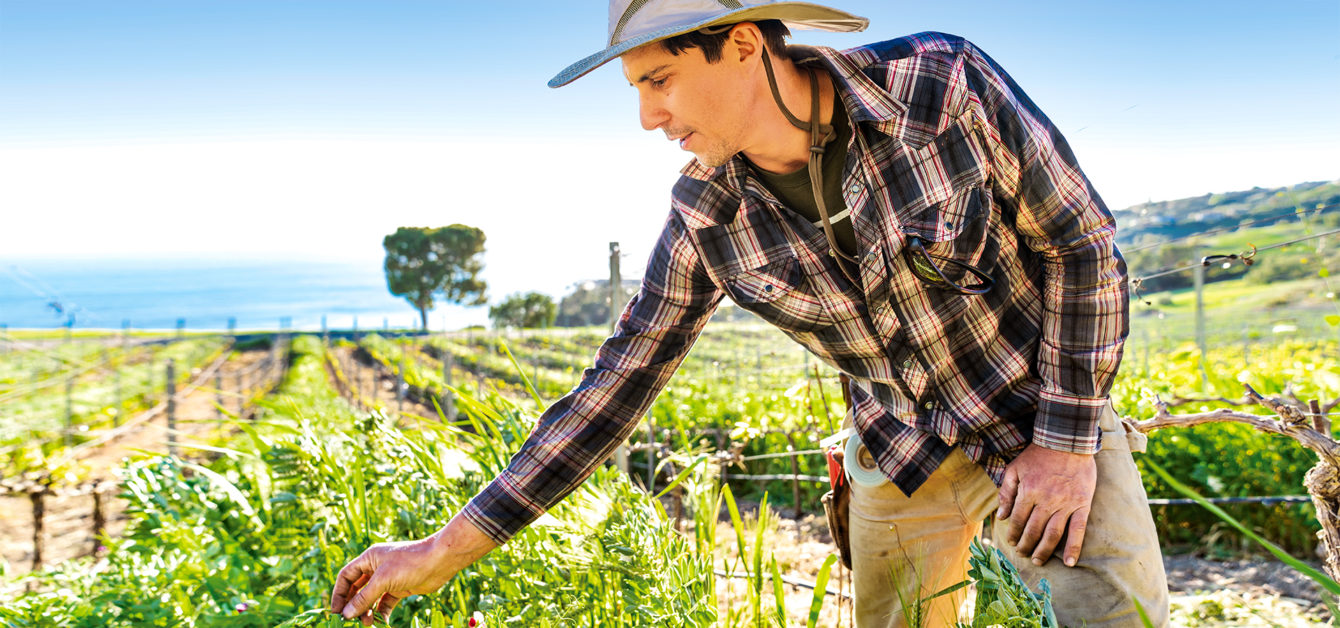
Nick takes a natural approach to pest control, which includes netting the grapes to protect them from birds and installing owl nesting boxes to encourage a raptor population on the property for gopher control instead of using environmentally hazardous poison.
“When people use poison, there is a great risk of poisoning our best preventers of rodents, which are owls and hawks,” says Ann Lynch, the founder and director of South Bay Wildlife Rehab. “The rodents eat the poison and then move out into the wild, where they are eaten by raptors that are secondarily poisoned. These birds keep the rat and mouse population in check naturally.” Nick often sees the owls sitting on fence posts at night, hunting for active gophers.
In addition to being a proud steward of the earth, Nick enjoys his involvement in Catalina View Gardens’ community outreach. He recently hosted an urban farming class for a local high school and is looking forward to other educational opportunities on the property. Produce that is not purchased by local restaurants is donated to a soup kitchen on Skid Row where Nick formerly volunteered.
When not farming for the York family, Nick returns to Ecuador for two months every year to enjoy his small farm in Cahuasquí that he purchased in 2010. (It is a short-term rental when he is in the U.S.)
“Sustainability is a lifestyle and a way of thinking. It should not be a trend,” he points out. “The masses are becoming more aware of it now, but effective change needs to come from the top down. Big industry needs to be pressured to make changes. We can all do our part.”
After a Six-Year Back-and-Forth Battle, Foie Gras May Be Banned Again in California
This time it might be “adieu” … for real.
Behind the Plan to Expand Urban Forestation in Los Angeles by 2021
The city even created a new role to manage the sweeping project.
Get the Latest Stories




